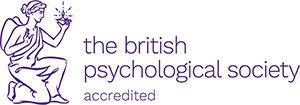
Psychology
BSc (Hons)
- Typical offer for 2025
- Duration
- UCAS code
- Start date
- Location
Suitable for applications.
The course really opened my eyes to the wide range of psychology disciplines there are. Social Psychology and Neuropsychobiology were two areas of my course that I really enjoyed and didn't know existed before starting my studies.
Placement Year
Teaching, learning and assessment
The teaching, learning and assessment strategy aims to develop active learning and takes into consideration the need for you to take greater responsibility for your own learning as you progress through the programme. You will be exposed to a variety of different learning and teaching approaches and activities. Please see the appendix for further details. Specifically, knowledge and understanding as well as transferable skills will be developed through:
- lectures
- laboratory/workshops
- seminars (e.g. problem/discussion based)
- tutorials
- projects/dissertations
- directed and self-directed study
- assessment-based learning (formative and summative)
- problem based learning
- collaborative learning and group work
- peer mentoring
Our approach is underpinned by research-led teaching which includes being exposed to the specialist research interests and practices of our academic team as well being informed by educational research.

Study abroad
A study abroad year is a fantastic opportunity to broaden your horizons, build connections with people from different backgrounds and cultures, and strengthen your skills and experience to make you stand out in the job market.
We have opportunities for students to study, work or volunteer in more than 150 countries across the world and will support you every step of the way.
Study support
We have a commitment to strong pastoral care for all of our students, which includes a Personal Tutor for all students, regular contact hours for tutor groups and our supportive student service teams who are always ready to help with any questions and provide the advice that you need.
In addition to standard study support through taught sessions, our Virtual Learning Environment allows students to access resources, participate in group work and submit work from anywhere in the world 24/7.
University central services are rich with support teams to assist students with every aspect of their journey through our degree programmes.
From our Career and Employability Service, through our strong Students' Union, to our professional and efficient Student Finance team, there are always friendly faces ready to support you and provide you with the answers that you need.
Research
Terms and conditions of study
The University has a set of terms and conditions for all students accepting an offer to study on a course here at Bradford. This is called The Student Contract. This document sets out the Terms and Conditions which apply when you accept an offer of a place on a programme of study at the University of Bradford.
View our Student Contract for further details.
Transparency statement
Information about this programme and its modules has been published in advance of the academic year to which it applies. Every effort has been made to ensure that the information is accurate at the time of publication, but changes may occur given the interval between publishing and commencement of teaching. Any change which impacts the terms and conditions of an applicant’s offer will be communicated to them.

